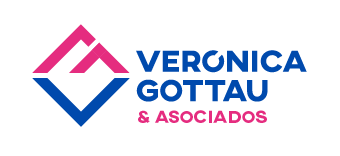Learning
Learning is more than just a temporary use of information or the expansion of knowledge. Learning implies, among other things, the incorporation of new concepts, and it requires making new connections between the previous and new knowledge in order to create new meanings. It happens, I don’t know how often, that new connections and new meanings differ widely, or are almost incompatible, with the new ones. Something that we could simply call contradictio in terminis.
Learning, therefore, leads us to transform long-standing ideas that have been useful tools to understand or interpret the world so far into new concepts. This means that we must make the old ideas ‘fit’ our new life experience.
Conceptual Change
We shall call this transformation of ideas and concepts «conceptual change» (Barner & Baron, 2016). A conceptual change is a slow and complex process. For this reason, any learning which is something more than the simple expansion of knowledge and which implies a conceptual change, will be more difficult to achieve. Among the various strategies that promote this type of learning, we can mention the model of Posner et al. (1982) who suggest that all conceptual change must begin with a cognitive conflict.
However, this linearity may not be reflected in the complexity of the mental and emotional processes. In general, we tend to protect and reinterpret, deny or even forget new evidence that produces a kind of cognitive dissonance with long-standing ideas. It is from this standpoint that we tend to to discard the conflicting aspects and remain with the evidence that allows us to preserve our previous ideas (Oswald & Grosjean, 2012).
In the same line of thinking, the organization could be thought of as an oxymoron (contradiction) insofar as they must obey a double mandate: a) repeat what was once successful (cling to long-established ideas) and (b) the need to change in order to continue to be selected in the environment (cognitive conflict).
A learning organization:
- Acquires new habits
- Allows conceptual change,
- Identify opportunities and develop ways to take advantage of them
- Detects problems and prepares to solve them.
New century-new teams. Three key concepts: Autorithy- Leadership-Heroism
There are three key concepts that will allow us to go from a simple group to the formation of a great team. The first challenge is to overcome the cognitive conflictproduced between the old and the new. For exmaple, iIf we think of authority, the first image that comes to our mind is that of a military officer, or a military institution. Along the same lines of analysis, leadership implies standing out, and heroism -a concept that has almost fallen into disuse- is limited to characters in literature. However, today it is possible to think about the formation of solid work teams from a resignification of these concepts. Let’s see what this is about.
By Authority we refer to all those that are in a position to give a technical answer. They are a guide and they set the work rules because they possess the technical knowledge. Authority, then, refers to the ability to apply the acquired knowledge to reality.
We also understand that Leadership arises when someone seeks adaptive responses to new, non-routine situations. In this case, the ability lies not in the application of knowledge but rather in the creation of new knowledge.. Leadership then refer to people who can adapt to the context by creating useful knowledge.
Can a leader lack authority? Yes.
Leaders may not be fully aware that they are giving adaptive responses or spontaneous solutions to problems that have arisen, or that their contributions are very valuable to the organization or that they are being imitated by others. Invisible leaders.
Leadership is not a trait or a condition.It is the introduction of a successful adaptive responses.
However, Heroism refers to those who dare do what others did not or could do. In other words, the idea and executing hand can come from different people. And it is possible to demonstrate Leadership, Heroism and Authority in different situations, contexts and moments.
We must be careful that the authority does not kill the emerging leaderships and allow the Heroism to flow in the daily task.
In short
In this context, it is of interest to ask ourselves: What resistance do we have to what is new? Do I see myself as a person capable of learning? Or how much energy do I dedicate to what is new?
Reflection on practice is usually done in silence. Therefore, the more we verbalize our reflections and learnings, the more agile our work will be.
Asesoría
En VG & Asociados acompañamos a las empresas y sus líderes en el desarrollo de sus habilidades de liderazgo y habilidades blandas en general desde el enfoque del Aprendizaje Organizacional. Nuestra propuesta busca potenciar las capacidades subyacentes de las personas en proceso de capacitación, invitándoles a ser parte activa del proceso.
Bibliography
Gore, E. (2021). Vida En Las Organizaciones, La: El Aprendizaje Como Acción Colectiva. Ediciones Granica.
Barner, D., & Baron, A. S. (Eds.). (2016). Core knowledge and conceptual change. Oxford University Press.
Posner, G. J., et al. (1982). Accommodation of a scientific conception: Toward a theory of conceptual change. Science education, 66(2), 211-227.
Oswald, M. E., & Grosjean, S. (2012). Confirmation bias. In Cognitive illusions (pp. 91-108). Psychology Press.



